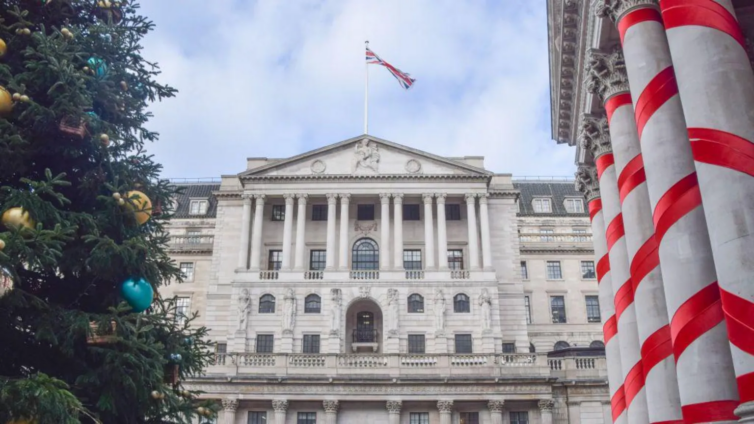The Bank of England is expected to hold interest rates at a meeting later today.
Most analysts predict the benchmark rate will stay at its current level of 4.75% when the decision is announced at 12:00 GMT.
It comes as inflation rose for the second month in a row to 2.6% in the year to November - pushing it further above the Bank's target of 2%.
In November, the Bank's governor Andrew Bailey said the path for rates would likely be "downward from here" but cautioned that the process would be gradual.
The Bank moves rates up and down to try to control inflation, which measures the pace of overall price rises.
The idea is that if you make borrowing more expensive, people have less money to spend. People may also be encouraged to save more.
In turn, this reduces demand for goods and slows the rate at which prices are rising.
But it is a balancing act - increasing borrowing costs risks harming the economy.
Businesses, for example, may borrow less, making them less likely to create jobs. Some may cut staff and reduce investment.
The Bank's Monetary Policy Committee (MPC) - the group of people at the Bank that decide on rates, cut them in November from 5% to 4.75% - the second reduction in 2024.
However, rising prices, combined with figures on Tuesday that showed faster growth in wages, suggest that the central bank may need to hold interest rates at their current level for longer.
Paul Dales, chief UK economist at the think tank, Capital Economics, said November's higher inflation figure made it very unlikely that interest rates would be cut on Thursday.
"There is almost no chance of the Bank of England delivering an early Christmas present with another interest rate cut," he said.
"That's especially the case since domestic inflation pressures appear to be a touch stronger than the Bank expected."
Capital Economics predicts inflation will dip in December and then rise again in January.
But it anticipates that by the end of next year, it would have fallen back to close to the Bank of England's 2% target.
The Bank's base interest rate heavily influences the rates High Street banks and other money lenders charge customers for loans, as well as credit cards.
Lenders have mostly "priced in" the impact of a base rate hold or cut when making decisions on their own interest rates.
Mortgage rates are still much higher than they have been for much of the past decade.
The average two-year fixed mortgage rate is 5.04% according to financial information company Moneyfacts. A five-year deal has an average rate of 4.14%.
Latest Stories
-
2 million NPP supporters did not turn up to vote – Kabiru Mahama
4 seconds -
IPR Ghana congratulates citizens for peaceful election, calls for unity
38 minutes -
Bawumia’s 8 minutes elite ball that zapped the energy of trigger happy politicians
1 hour -
It will be a betrayal if National Cathedral saga does not feature in ORAL’s work – Ablakwa
2 hours -
‘It’s unfortunate we had to protect the public purse from Akufo-Addo’ – Ablakwa on ORAL Team’s mission
2 hours -
Congo lawyers say Apple’s supply chain statement must be verified
3 hours -
Stampede in southwestern Nigerian city causes multiple deaths
3 hours -
Tens of thousands without water in Mayotte as curfew brought in
3 hours -
ORAL: We won’t witch-hunt, we’ll focus on transparency, not revenge – Ablakwa
4 hours -
Attempted robbery: Accused claims he carried cutlass for protection
4 hours -
Excavator operator jailed for stealing
4 hours -
African fans age-shame me for putting on some outfits – Tiwa Savage
4 hours -
Tiwa Savage criticised by female fans for stance on cheating in relationships
5 hours -
Bank of England expected to hold interest rates
5 hours -
Congo river boat sinks killing at least 22
5 hours

